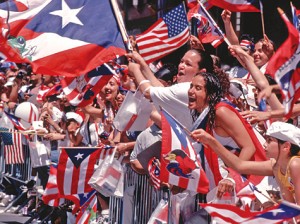Puerto Rico’s potential statehood must clear partisan hurdles

By Marianela Toledo | Florida Watchdog
MIAMI — A movement is afoot in the U.S. Senate that would make Puerto Rico the 51st state, but the legislation has plenty of high partisan hurdles to clear.
The bill by Sen. Martin Heinrich, a New Mexico Democrat and a member of the Senate Committee on Energy and Natural Resources, which has jurisdiction over the status of Puerto Rico, proposes asking island residents if they want to be admitted into the United States.
Heinrich’s bill was inspired by one that was submitted to the House of Representatives by Puerto Rico’s non-voting member of Congress, Pedro Pierluisi, leader of the pro-statehood New Progressive Party. According to a press release by Pierluisi, the bill “demonstrates that the momentum on behalf of statehood continues to build,” and “we are closer than ever before to achieving our goal.”
That proposal, which was presented in the House in May, would give the go-ahead to begin the process of statehood for Puerto Rico. Although both bills were sponsored by Democrats, Pierluisi claims they received bi-partisan support.
STATUS QUO: Even if the efforts of some representatives are moving to make Puerto Rico, the 51 State of U.S. there is long way ahead to get that goal.
Juan Carlos Hidalgo, a policy analyst on Latin America at the Center for Global Liberty and Prosperity at the Cato Institute, said Puerto Rico’s governor, Alejandro García Padilla, who doesn’t support statehood, has to approve another referendum that would cost the federal government about $2.5 million.
Even if the referendum shows an overwhelming majority in favor of statehood, it must then be approved by a simple majority in Congress. ”That’s not going to happen,” Hidalgo said. “That is something that hardly happens because of the political consequences.”
Making Puerto Rico the 51st state would add two senators and six to eight representatives.
“These representatives are almost always Democrats and it would change the balance of power,” he said. “For the same reason Republicans don’t want to give away their power in Washington, they are opposed to Puerto Rico becoming a state.”
Is statehood the silver bullet for the economy?
In November 2012, Puerto Ricans voted on a non-binding ballot about their statehood preferences. As a result, “the future of the island in limbo,” said Maurice Ferre, the first Puerto Rican elected as Miami’s mayor.
In that vote, 70 percent rejected both statehood and independence, choosing “none of the above.”
Hidalgo believes Puerto Rico’s status as a U.S. territory puts it at a disadvantage.
“I think many of the current economic problems are because of the status,” he said.
Puerto Rico’s minimum wage is set by the U.S. government, for example, and Hidalgo said this has translated into a tremendous unemployment problem for the tiny nation. He points to that law as the reason 40 percent of Puerto Ricans are on welfare.
“The labor participation rate is among the lowest in the world. Only 41 percent of the people who are of working age work,” he said.
Meanwhile, the U.S. Government Accountability Office told Watchdog.org it will soon release a report on economic and social status of the island. A few weeks ago the credit rating agencies Standard & Poor’s and Moody’s downgraded Puerto Rico’s bonds to “junk.”
“The cost of borrowing will be too high and they will have to restructure,” Hidalgo said.
Statehood could also give business start-ups pause because “companies would have to start paying federal taxes, which is what attracts them to set up shop here.”
Contact Marianela Toledo at Marianela.Toledo@FloridaWatchdog.org or on Twitter @mtoledoreporter
The post Puerto Rico’s potential statehood must clear partisan hurdles appeared first on Watchdog.org.







